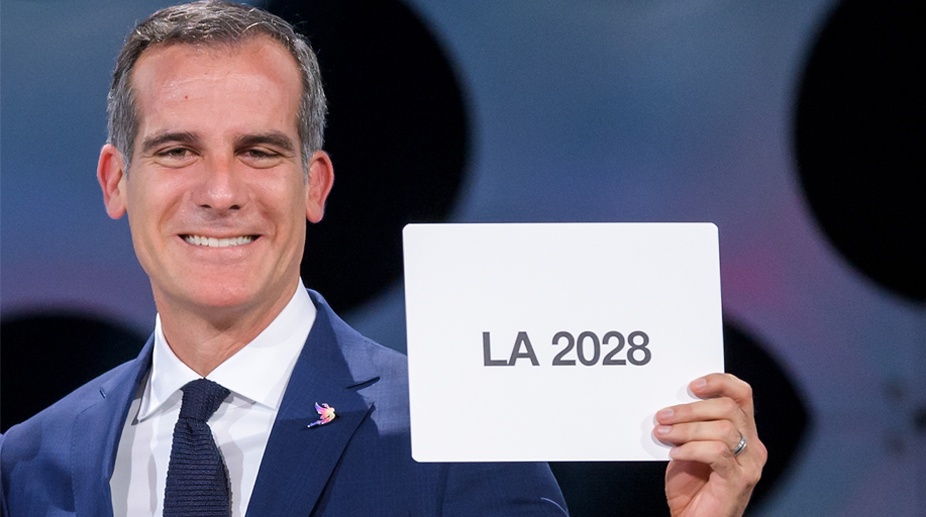The International Olympic Committee named Paris and Los Angeles as hosts for the 2024 and 2028 Olympics, crowning two cities at the same time in a historic first for the embattled sports body.
Loud applause rang out at the Lima Convention Centre shortly after the IOC membership voted to approve a deal hashed out in July which arranged for Paris to be given 2024 and Los Angeles 2028.
Advertisement
Paris and Los Angeles bid leaders joined International Olympic Committee President Thomas Bach on stage as the award was confirmed, embracing after an outcome hailed as a “win-win-win” by the IOC.
Both Paris and Los Angeles made final presentations to IOC delegates before the formality of the rubber-stamp vote was taken.
“You can’t imagine what this means to us, incredible, so strong,” Paris 2024 co-chairman Tony Estanguet told delegates shortly before the vote.
It marked the final act of a campaign that had been stripped of the usual intrigue ever since Paris and Los Angeles agreed to carve up 2024 and 2028 in July following encouragement from the IOC.
Paris 2024 officials hugged and cheered following the vote, basking in victory after three previous failed bids to land the 1992, 2008 and 2012 Olympics.
The 2024 Games will mark the third time Paris has staged the Olympics, coming exactly 100 years after they last hosted the Games.
Los Angeles 2028 officials also celebrated the return of the Olympics to US soil.
The 2028 Olympics will be the first held in the United States since the chaotic 1996 Games in Atlanta.
It will also mark the third time that Los Angeles has hosted the Olympics following successful editions in 1932 and 1984.
“Los Angeles reflects the face of America’s future and the heart of American values of inclusiveness, generosity and unity,” Los Angeles mayor Eric Garcetti said during his final pitch to IOC members.
Paris and Los Angeles emerged from the initial bidding race for the 2024 Games after a number of cities withdrew citing waning public support and concerns over budget.
Hamburg, Rome, Budapest and Boston all fell by the wayside during the competition, reflecting the political difficulties in persuading voters that staging the Olympics is worth the multi-billion-dollar price tag.











